Stratford residents search for leaks and savings in free water audits
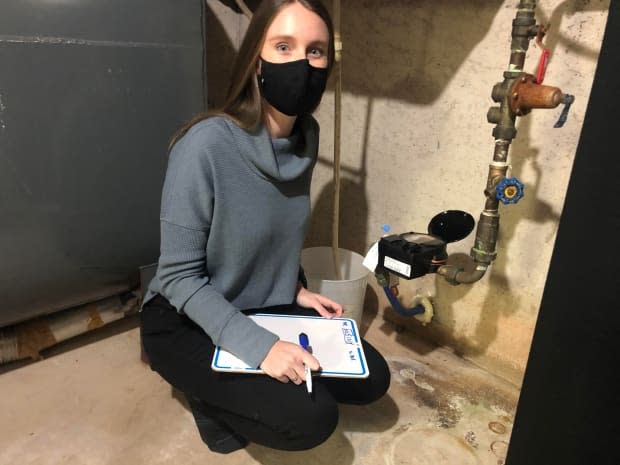
About 75 Stratford, P.E.I., households took part in the town's free water audit program in 2020, the first year it was offered in the Island community.
"Four or five years ago, Stratford introduced the water meters to set up a system for monitoring water use within the residential homes, so the watershed group partnered with the town in an effort to reduce water use within homes," said Emily VanIderstine, watershed co-ordinator.
"The watershed group was seeing a lot of impact on our freshwater streams, especially in the Fullerton Creek conservation area, which is one of the town's major well fields."
Checking for leaks
VanIderstine said she starts the audit by teaching homeowners how to read their water meter, and how to check it for leaks.
For the second part of the water audit, she goes around the home, to different bathrooms and in the kitchen, and measures the flow of each fixture, to measure how much water each faucet is actually using.
She also asks the homeowners questions about their water use habits.
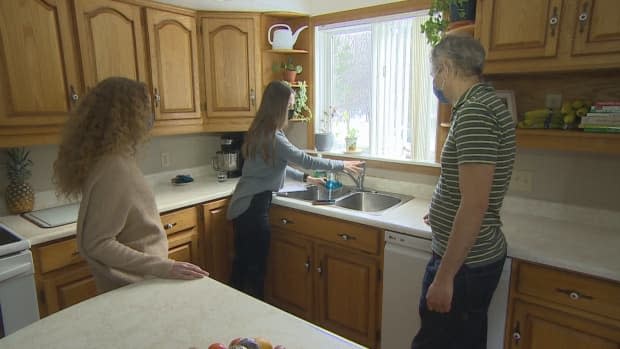
Finally, based on the questions and measurements, she said the home gets a rating out of 100 and recommendations on how to reduce their water use.
"We've been finding quite a few leaks in most homes, especially older homes, I'd say probably 95 per cent of the time, " VanIderstine said.
"I guess because people aren't normally looking for them, so you can go years without checking for leaks, especially in the older homes where maybe people have never looked."
'Shocked' at water bill
VanIderstine said Stratford residents have a range of reasons for signing up for a water audit.
"A lot of the times it is because of the high water bill where people are quite shocked at how much it's costing them. And then as we go into the homes, people are more interested in the conservation side of it as well," VanIderstine said.
"We've had a few where it's been purely for the conservation side, but the majority of them are because of the cost of their bills."
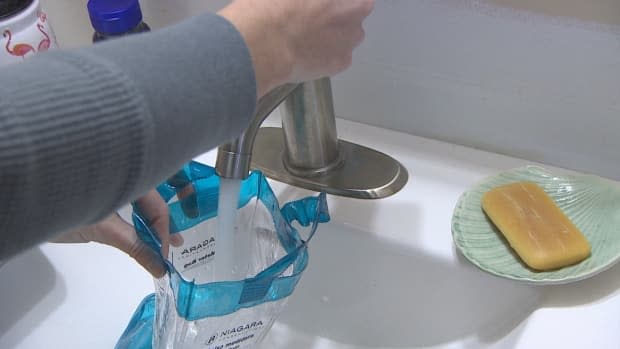
VanIderstine said some water leaks have led to hefty bills.
"We've had people where their bill ended up being $1,000," VanIderstine said.
"The first thing they usually do is they'll call the town and say, my water bill is extremely high. What happened? What can I do? The town usually directs them toward me."
VanIderstine said if she can't find the source of the leak, the town can send a utility staff person to help.
Useful advice
Homeowners Wendy Wittenberg and Tim Rob had a water audit done at their home in February 2020, not long after they moved in.
"Since we bought this house, and it was already a little bit old, we wanted to have as much checked as possible and look into ways to improve things," Rob said.
"Partly it's indeed lowering the bill and also just wanting to use less water."

As a result of the audit, Rob said the family decided to replace two toilets that were old and had been using a lot of water.
"We had leaks. I already fixed one before the water audit, in one toilet, and there was actually another leak in another toilet and I didn't know about that," Rob said.
They also replaced their dishwasher and washing machine, based on the recommendations from the audit.
"I would definitely recommend to have this done so you would know if you have a leakage, if you can save some money and water," said Wittenberg.
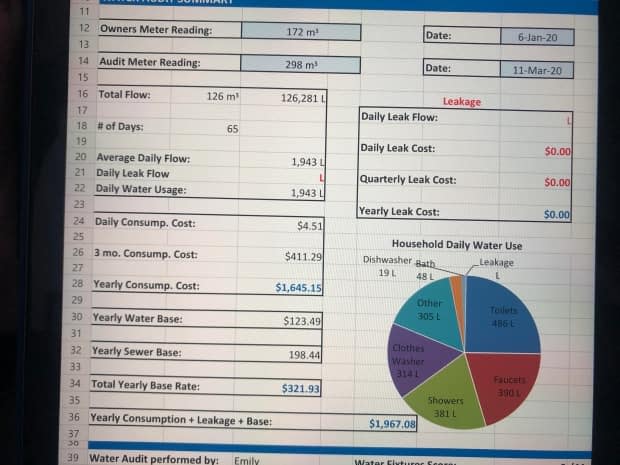
VanIderstine said COVID definitely impacted the number of participants in the program, which launched in January 2020, with a goal of 200 households per year.
The program was put on hold several times, and new COVID measures mean wearing masks and social distancing during the audits, and fewer home visits per day.
"We also have to sanitize all of our equipment between each home so before we were doing four to five audits a day going from home to home, whereas now there's a bit of a break in between.
"We're doing less audits a day just to reduce kind of interactions with the public to keep our contact tracing numbers a bit lower."
Monitoring streams
The audits pause during the summer, and the watershed crew heads out to monitor water levels, which is the second component of the program.
"We've been keeping track of the number of audits we've been doing ... we're keeping track of the amount of water each home is using, the amount of leaks," VanIderstine said.
"We're also measuring water volume in streams, and we're hoping that as the program goes on, we see those volume measures increase and the homeowners' use decrease."
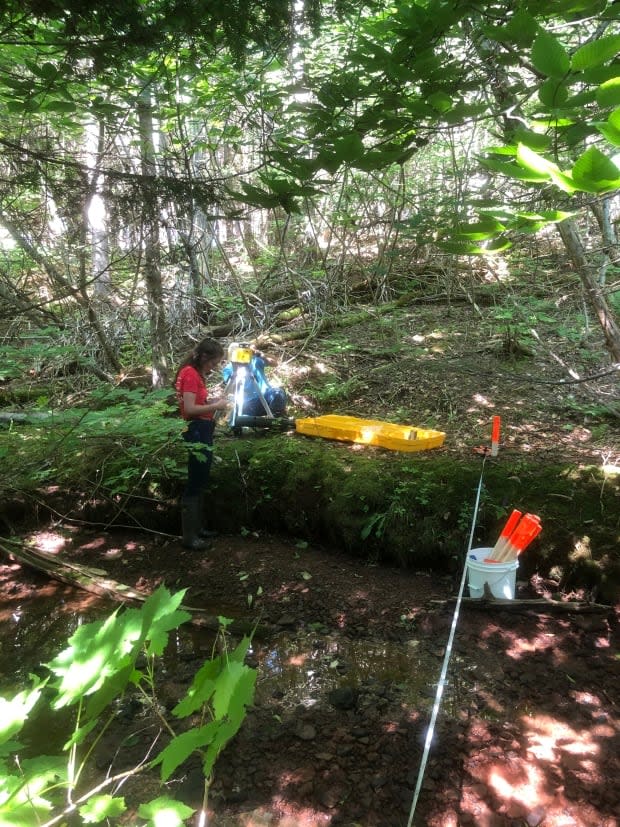
VanIderstine said the program will continue for two more years, with funding from Environment and Climate Change Canada and the town.
More from CBC P.E.I.

